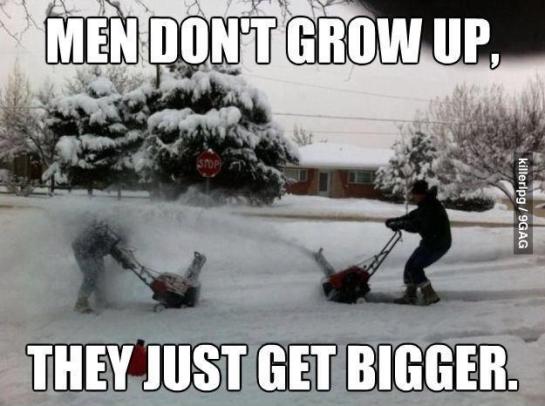Psychologist divide our life in periods calling them ‘critical periods in development’:
*Toddlerhood:
Babies between ages of one and two are called toddlers. In this stage, intelligence is demonstrated through the use of symbols, language use matures, and memory and imagination are developed. Thinking is done in a non-logical, nonreversible manner. Egocentric thinking predominates.
*Early childhood:
When children attend preschool, they broaden their social horizons and become more engaged with those around them. Impulses are channeled into fantasies, which leaves the task of the caretaker to balance eagerness for pursuing adventure, creativity and self-expression with the development of responsibility. If caretakers are properly encouraging and consistently disciplinary, children are more likely to develop positive self-esteem while becoming more responsible, and will follow through on assigned activities.
*Adolescence:
Adolescence is the period of life between the onset of puberty and the full commitment to an adult social role, such as worker, parent, and/or citizen. It is the period known for the formation of personal and social identity and the discovery of moral purpose. Intelligence is demonstrated through the logical use of symbols related to abstract concepts and formal reasoning. A return to egocentric thought often occurs early in the period.
*Early adulthood:
The person must learn how to form intimate relationships, both in friendship and love. The development of this skill relies on the resolution of other stages. It may be hard to establish intimacy if one has not developed trust or a sense of identity. If this skill is not learned the alternative is alienation, isolation, a fear of commitment, and the inability to depend on others.
*Middle age:
Middle adulthood generally refers to the period between ages 40 to 60. During this period, middle-aged adults experience a conflict between generativity and stagnation. They may either feel a sense of contributing to society, the next generation or their immediate community or a sense of purposelessness.
*Old age:
This stage generally refers to those over 60–100 years. According to Erikson’s Theory of Psychosocial Development, old age is the stage in which individuals assess the quality of their lives. In reflecting on their lives, people in this age group develop a feeling of integrity if deciding that their lives were successful or a feeling of despair if evaluation of one’s life indicates a failure to achieve goals.
BUT WHAT ABOUT SEEING THESE ADULTS PLAYING AS CHILDREN AND BEING FREE MINDED AND ACTING FREE…
That’s the definition of happiness:
breaking all the rules that we have been learned by our social interactions
and
becoming ageless.
Even if we live in a physical world and getting older in a physical meaning;
we actually belong to an emotional world which our thoughts about ages don’t count. We are basicly free to shape our lives without thinking and also blaming our age.
There is no calendar of feelings.
There is no boundaries and rules.
In psychology, Adler became famous by his definitions that he gave:
Adler refused to limit psychology to analysis, making the important point that aspirations look forward and do not limit themselves to unconscious drives or to childhood experiences. He also originated the concepts of lifestyle (1929 — he defined “lifestyle” as an individual’s characteristic approach to life, in facing problems) and of self-image, a concept that influenced management under the heading of work-life balance.
Carl Gustav Jung made contributions to personal development with his concept of individuation, which he saw as the drive of the individual to achieve the wholeness and balance of the Self.
Whatever the nature of his Dream, a young man has the developmental task of giving it greater definition and finding ways to live it out. It makes a great difference in his growth whether his initial life structure is consonant with and infused by the Dream, or opposed to it. If the Dream remains unconnected to his life it may simply die, and with it his sense of aliveness and purpose.
All theoretical and scientific explanations stop in a point that:
LIFE BELONGS US.
WE SHAPE OUR LIVES.
WE SHAPE OUR AGES.
AND BEING HAPPY IS TOTALLY RELATED TO OUR OWN PERSPECTIVE OF LIFE.
If you don’t have (or even if you have) physical disabilities; WALK-RUN-JUMP AND LAUGH ENOUGH TO HEAR YOUR SOUL.
SNOW AND SUN, RAIN AND WIND are just for us. All we have to do is having fun of them with no thinking about our age.
I don’t tell you to act like children:
I suggest you TO FEEL AND BE HAPPY LIKE CHILDREN.

